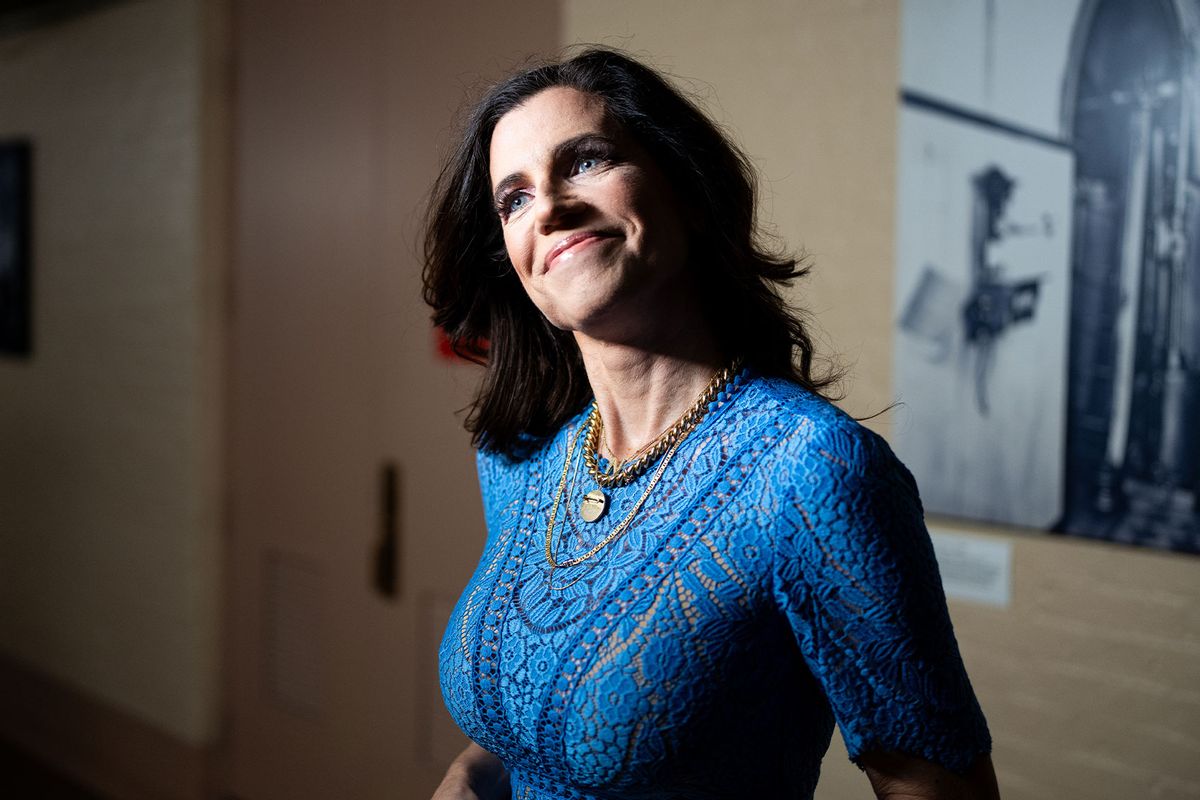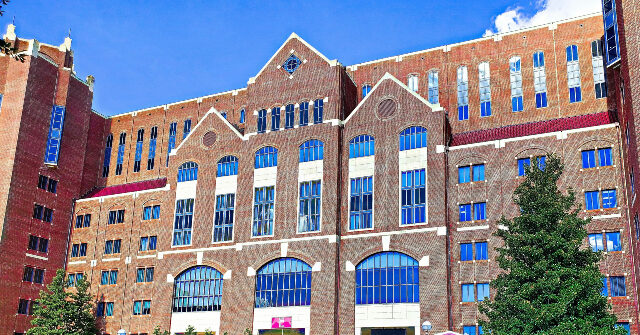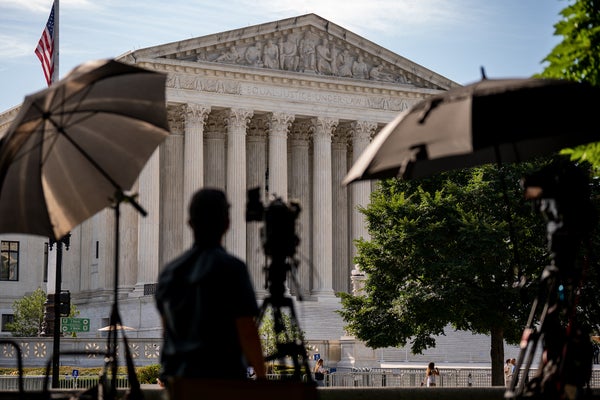Supreme Court Allows Emergency Abortions in Idaho—For Now
A Supreme Court decision allows emergency abortion care despite a state ban in Idaho while the case works its way through lower courts
Andrew Harnik/Getty Images
The Supreme Court has released an opinion that sanctions emergency abortion care in a state that bans the procedure—at least for the time being. But the ruling fails to codify that protection for pregnant people, leaving some doctors in a difficult position.
A draft of the decision appeared briefly on the Court’s official website on Wednesday and was abruptly removed minutes later, Bloomberg News reported. The ruling consolidated two cases that involve a federal law called the Emergency Medical Treatment and Labor Act (EMTALA), which requires hospitals that receive federal funding to provide emergency care to stabilize a patient. The U.S. Department of Justice sued the state of Idaho, which bans all abortions except those performed to save a pregnant person’s life (and in certain instances involving rape or incest); the DOJ argued that EMTALA supersedes Idaho’s restrictive abortion law because pregnant people should be able to receive emergency care to preserve their health—including future fertility.
The Court dismissed the consolidated cases and voted to remove a stay on a federal district court order. The decision effectively allows hospitals in Idaho to continue performing abortions in emergencies to stabilize pregnant people’s health while litigation proceeds through the lower courts.
On supporting science journalism
If you’re enjoying this article, consider supporting our award-winning journalism by subscribing. By purchasing a subscription you are helping to ensure the future of impactful stories about the discoveries and ideas shaping our world today.
The Supreme Court did not rule on the merits of the case; it merely kicked it back to the lower courts. “I think it’s a temporary reprieve and a modest victory for reproductive rights and medical ethics, but it still places pregnant patients and their doctors in an intolerable position,” says Lawrence Gostin, a professor of global health law at Georgetown University. (Comments from experts that Scientific American consulted for this article regard the initial draft ruling.)
The ruling does not give EMTALA total precedence over state abortion bans. Pregnant people are “still going to be kept waiting outside hospital in a parking lot, say, until they’ve suffered life-threatening deterioration in their health,” Gostin says. And it creates confusion for doctors, who might be uncertain about whether or how to comply with federal or state law. “If they fail to provide medical care in an emergency, they may have violated federal law,” he explains. “If they do provide abortion care in an emergency, they may face a criminal sentence and loss of license.”
Ushma Upadhyay, a professor and public health scientist at the University of California, San Francisco, says the ruling does not show concern for the health and safety of pregnant people. “We know from our research that pregnant people in restrictive states who experience complications are being denied care and are forced to get sicker or [travel] in order to receive treatment,” she says. “The Supreme Court should come down decisively to ensure all pregnant people have the protections of EMTALA that they need.”
News of the decision closely follows a separate Supreme Court ruling on access to the abortion pill mifepristone that was announced earlier this month. In it, the Court found that the plaintiffs—a group of antiabortion doctors and activists—did not have standing to bring a case. This effectively preserved access to medication abortion for now in states where abortion is legal. But other court challenges are likely to follow, experts say.
Two years ago, in Dobbs v. Jackson Women’s Health Organization, the Supreme Court ruled to overturn the right to abortion guaranteed by the Court’s foundational Roe v. Wade decision. In Dobbs the justices argued that abortion should be an issue for the states to determine—not the Court. But the recent cases involving medication abortion and emergency abortion care suggest this issue will only continue to return to the nation’s highest court.
And the stakes go far beyond reproductive choice. “If there’s one bedrock principle of the American health care system, it’s that everyone knows that if they turn up in a hospital with their health or life in jeopardy that they’ll be taken care of,” Gostin says. “It’s probably the highest principle of medical ethics, and right now there’s a big carve out for individuals who are pregnant.”













![How Do Toilets Work? [ENCORE] by Tumble Science Podcast for Kids How Do Toilets Work? [ENCORE] by Tumble Science Podcast for Kids](https://d3t3ozftmdmh3i.cloudfront.net/staging/podcast_uploaded_nologo400/12170416/2ebd04abeedc43e3.jpeg)




Discussion about this post